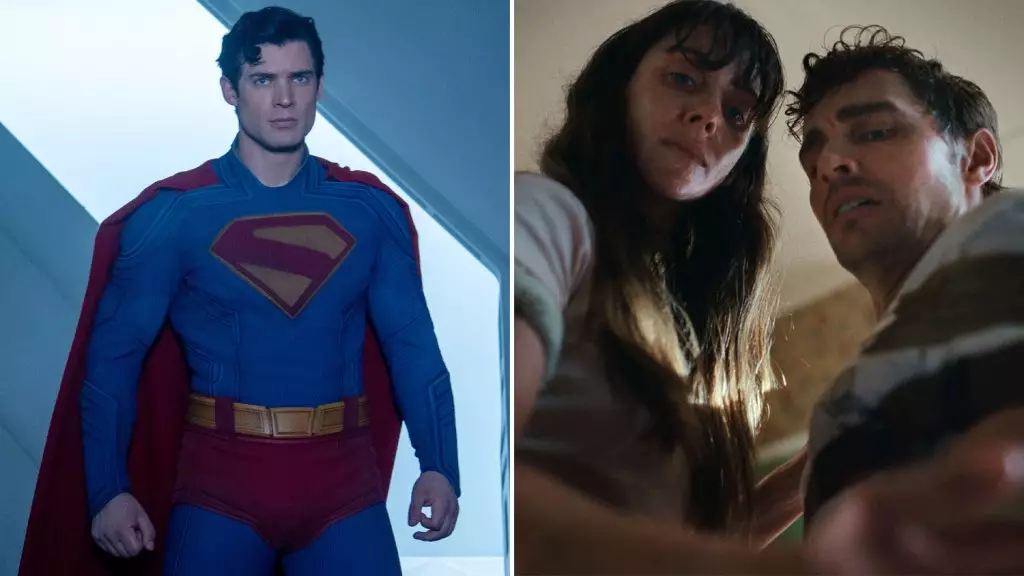The recent success of James Gunn’s Superman film, surpassing the $300 million mark at the domestic box office, marks more than just a monetary milestone; it signifies a potential renaissance for a previously faltering franchise. Historically, DC’s cinematic universe has suffered from inconsistencies and a misguided obsession with dark, gritty reinterpretations, often alienating the broad audience that once embraced its iconic heroes. This film’s impressive performance indicates that audiences crave familiar narratives told with fresh energy and balanced storytelling—something Gunn seems to understand and deliver. It signals an important shift in DC’s strategy, moving toward a more balanced approach that could revitalize its flagging reputation while maintaining its distinct identity.
Market Realities and Audience Expectations
The box office numbers reflect a nuanced landscape. Crossing $300 million domestically within just 21 days is a feat, especially considering the competitive summer lineup including Marvel, animated hits, and other blockbusters. However, the film’s performance compared to the previous Batman iteration indicates a cautiously optimistic trend rather than an unequivocal domination. Its modest 4% lag behind The Batman suggests fans are receptive but still cautious—perhaps skeptical of the new direction or hesitant following last year’s uncertain DC offerings. Nonetheless, the fact that Superman is outperforming Wonder Woman underscores its broad appeal—a testament to the character’s potential in a post-Snyder era emphasizing heroism and authenticity that resonate with both traditional comic fans and newer viewers looking for genuine spectacle.
Creative Risks and Industry Implications
While Superman’s ongoing success might signal a shift back toward more traditional hero storytelling, the overall industry context is complex. The opening of the horror movie “Together” shows a different dynamic—smaller films can still carve out a niche if they meet audience tastes. Neon’s gamble on a mid-budget horror flick with high critic scores highlights an important industry trend: diverse content can find commercial success even amid mega-franchises. Yet, the broader impact of one blockbuster’s triumph must be assessed carefully. Will Warner Bros. and DC learn the right lessons from Superman’s performance, or will they double down on overhyped franchises? Judging by recent market trends, it’s clear that a nuanced strategy—focusing on quality storytelling that respects audience expectations—will serve them better than chasing fleeting records.
The significance of Superman crossing this $300 million threshold cannot be dismissed lightly. It’s a loud response to preconceived notions that DC films cannot be commercially successful without darker, more somber tones. However, the industry’s shifting sands demand more than just one hit. It’s about sustained storytelling, strategic franchise management, and understanding audience desires. This milestone suggests that DC is capable of balancing innovation with tradition—an approach that could cement its place as a serious competitor in Hollywood’s blockbuster arena. Whether this is merely a blip or a new dawn depends on how Warner Bros. and Gunn choose to leverage this momentum going forward.

